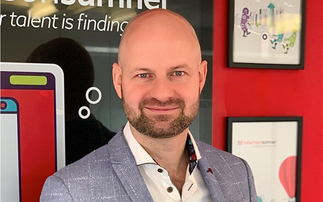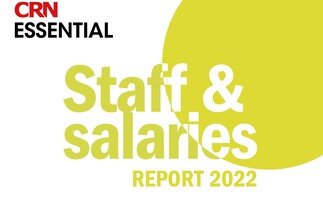
Apay Obang-Oyway
Partner sales director, Microsoft
What's the most pressing issue preventing progress with diversity today that no one's talking about?
Reporting on under-represented communities in the workplace is vital for us to progress on the equality journey for all; we act on what we measure. We need to see and have the same level of focus on reporting, which covers a wider group of under-represented communities as we have done for gender diversity. This would benefit all stakeholder communities, from employees to customers and investors. Many organisations are making significant progress in the representation of under-represented communities within their teams, including at the leadership level. They should be celebrated for their progress to have organisations that truly represent the communities they serve. These organisations can also be role models to others who see their progress. Conversely, we must hold to account those who are just virtue signalling and not truly driving change in this vital aspect of our growth as an industry, society and planet. The opportunities and challenges we face as humanity are wide, varied, complex and interconnected. From peace to poverty, food security to disease, climate change and inclusive economic prosperity. All these challenges represent opportunities for humanity to innovate by leveraging a diverse talent pool. The size of opportunities ahead is so large that we need more and every talent on the planet to play an active role and not be wasted. When you allow this talent pool to work within a truly diverse and inclusive environment, we see extraordinary things happen for organisations, industries and society.
What do you believe are the most effective policies and initiatives that companies can implement to promote diversity in their workforce?
As a cloud technology professional and global citizen, I have a desire that we deliver a world that is better for all our children that is better than the one we inherited. This is where my determination for diversity, equality and inclusion (DEI) comes from and not as a DEI professional. I can only speak to some of my experiences of the exciting policies being implemented within the organisation. The policy-making needs to come from those professionals. Consider organisations as living organisms needing to listen and learn to evolve where it believes it needs and wants to. Some of the more effective initiatives in my experience that promote diversity land within the context of SEA (share, educate, accountability). Organisations that operate within the SEA seem to accelerate the achievement of their D&I ambitions. • Share - Provide the platform for those from under-represented communities to ‘tell their story' from the most junior to the most senior individual. This is crucial for us all to learn about our varied, complex and, at times, unacceptable journeys. Many people within organisations want to be allies to all. They are keen to be guided and supported through the journey to be great allies. Before you can be a great ally, you must understand the reality of those you look to be an ally to. • Educate - There is no substitute for education in all aspects of our lives and society. D&I training certainly helps organisations accelerate the achievement of their D&I ambitions. To mobilise the workforce behind your D&I ambitions and make it a living thing, it's key to tell the organisation why before the how. • Accountability - Measuring and holding leaders to account for D&I as part of performance management is vital to moving the needle on diversity in the workforce. In creating this approach, it's essential to listen and ensure clear feedback opportunities for leaders as part of developing the accountability process. That will help the organisation design accountability strategies that deliver the intended impact as outlined by Dr Evelyn R Carter in an HBR article.
How much progress do you believe the industry has made in diversity since you started working in IT?
There has been substantial progress, especially on gender diversity in our industry. However, we still have a lot more to do on this journey. This topic of diversity is top of mind for many leaders in our industry today as they try to navigate the talent crunch we are currently experiencing in all industries. Consider that 69% of executives rate diversity and inclusion as an important issue. This is an example of the progress we have made with this many executive leaders having equality for all as a key strategic issue. The facts are there for all to see around the value opportunity for organisations who are diverse and inclusive. They tend to outperform their competitors by a significant margin and are more likely to capture new markets.
What should senior management teams be doing more of to help create a more inclusive industry for everyone?
Senior leaders should be encouraged to look in the mirror and ask themselves the tough questions of their teams. When you enter your next meeting with your team, pause and look around the room. Ask how much this team represents what I know and acknowledges my thinking rather than challenges it. Is the room filled with talent that truly represents the community they serve? Then do the same with your next layer of leaders and their teams. What does the room look like?
How did you first get into the IT industry?
My journey into the IT industry started after completing my undergraduate studies and having the privilege of joining the industry through the channel partner ecosystem with one of the largest technology partners in Europe at the time.
What have been some of your experiences (both good and bad) with how the IT industry has historically approached diversity?
While progressing my professional journey and building my leadership muscles, I have been led and mentored by some amazing female leaders. A number of my leadership milestones occurred under female leadership. That's not to take away from the men who have lifted me onto their shoulders. We are in such an amazing forward-thinking industry that I have the privilege of having a female boss, and her boss is also female. Also, I have the honour of working alongside fantastic, diverse female leaders who are my peers internally and externally. What I have found is the stark difference in terms of ethnic diversity within the leader hierarchy of our industry and the experience that sometimes brings. Walking into senior leader meetings and conferences and there is a single handful, or sometimes you are the only one from the BAME community in the room. This brings a different challenge as a leader in the room and your role. This has improved over the years, and we certainly see more commitment from industry leaders to this aspect of D&I. In my experience I have also come across organisations and leaders who focus and boast of their D&I credentials based solely on gender diversity. While understanding the measurement is more available and, therefore, easier to build a narrative on the progress made on gender diversity, this mustn't be the only lens D&I is looked through.
Who have been your biggest role models in your professional life, and how have they helped you to succeed?
My parents, especially my mum, who is a trailblazer in her own right. As a black female, she broke many firsts, especially as a corporate leader within the UK public sector, paving the way for others who follow. She taught me much about values-based, people-centric, servant leadership from the outset. Always put your people and your customers or users first. Always lead with empathy to those you have the privilege of engaging throughout your career, good or indifferent.
Do you think companies should be compelled to publish ‘ethnicity pay gap' data?
The case for having such reporting is clear and encouraging while supporting organisations towards this end is key. This would help us have a more diverse and inclusive industry, society and economy. The other side is that ‘ethnicity pay gap' data would help with building confidence in the system while also celebrating those organisations and leaders doing a great job delivering equality for all. This report is not just morally right; it also makes economic sense. Actual change requires data and actions. The introduction of ethnicity pay gap reporting will give organisations the transparency to uncover where gaps exist and, in turn, invest in developing programmes to skill up and hire the right resources to address these gaps. We need talent from everywhere, and upskilled talent from underrepresented communities drives substantial economic prosperity for all. Full representation of ethnic minority groups across the labour markets, through improved participation and progress, would result in increased output of around £24bn a year (1.3 per cent of GDP, according to analysis done as part of the McGregor-Smith Review 2017).
Do you believe Covid has hampered or helped gender diversity efforts in the IT industry?
Unfortunately, it has likely hampered the progress we have made so far. During the pandemic, there has been an increasing need for care for the vulnerable in our communities, such as elderly parents and children, with support services dramatically reduced. The burden of this care tended to fall disproportionately on women. A McKinsey report on Covid and gender equality points to this fact. According to McKinsey, women's jobs are 1.8 times more vulnerable to this crisis than men's jobs. Women make up 39 per cent of global employment but account for 54 per cent of overall job losses. Undoubtedly, nuances to this will also need to be understood as there are possible socio-economic variances in those hampered or helped from a gender diversity perspective.
What do you believe are the most effective ways an employer can promote a multicultural and multifaith workplace?
First, we must think, create and deliver value consistently with a diverse lens, ensuring all are included. This needs to be in the fabric of the organisation's culture. Employers can work to create recruitment processes that look through a diverse lens. This means employers can look to provide guidelines for hiring managers to have a level of representation within their interview pool. When we look beyond our superficial differences, we start to understand we have lots more in common; and that's when amazing things happen. Our role must be to hand over to the next generation a world better than the one we inherited so they can do the same for their children.












